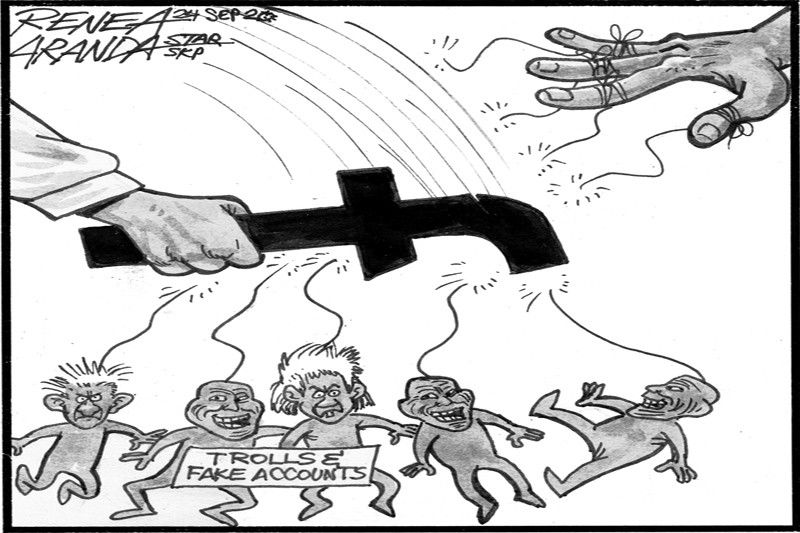EDITORIAL - Coordinated inauthentic behavior

Both the Armed Forces of the Philippines and the Philippine National Police have vehemently denied maintaining accounts engaged in coordinated inauthentic behavior on Facebook. The AFP has since provided nuance to its denial, as officials defended posts portraying abuses attributed to the communist New People’s Army and Islamist terrorists.
Facebook has stressed that the accounts, which included posts engaged in what critics describe as red-tagging of suspected communist fronts or individual supporters, were not taken down over content. But AFP officials have lamented that the social media giant could be showing bias in its actions.
Also taken down by Facebook was a network originating in China’s Fujian province, which posted content on the Philippines, including the South China Sea dispute and the possible presidential run of President Duterte’s daughter, Davao City Mayor Sara Duterte Carpio. Facebook said the network included 155 accounts, 11 Pages, nine groups and six Instagram accounts.
It may be tough to trace the creators of the accounts, but they are unlikely to be the last. Social media has provided a platform for promoting certain viewpoints and spreading all sorts of information, including fake news, black propaganda, bullying messages and other hateful content.
Facebook has tried to avoid acting as a content censor, although it is drawing a line on the use of its platform for child sexual exploitation, human trafficking and other crimes, hate materials, violence and terrorism. What it has done so far is go after networks of accounts engaged in what it describes as coordinated inauthentic behavior, including those on behalf of a foreign or government entity – the type believed to have influenced the US elections four years ago.
Since the internet became pervasive, policing cyberspace has been a challenge. Even as social media platforms and internet service providers try to deal with the problem, and countries move to make their legal frameworks responsive to the rapidly evolving technology, the public will just have to learn to be discerning in the consumption of information.
Any article or post from an anonymous source, or whose source or authorship cannot be verified, must be taken with a grain of salt. Such stories must be counterchecked against reliable sources of news and information, where accountability for accurate and fair content is clear, and which are covered by laws against the dissemination of malicious or slanderous information.
- Latest
- Trending
























